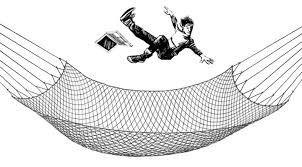 A student asks: "Were you taught memorization skills anywhere on your piano journey? What do you think is most important when memorizing music?"
A student asks: "Were you taught memorization skills anywhere on your piano journey? What do you think is most important when memorizing music?"No, none of my teachers taught how to memorize. To them, memorization was a nebulous thing, a topic not to see the light of day.
If there's one "most" important issue, it would have to be the inclusion of all of the memories. I think it's a mistake to rely solely on digital memory, which is what mindless repetition gives us. So when memorizing, I suggest removing as much digital memory as possible as soon as
possible, which will force the engagement of the ear, eye and the most important of these, the intellect, which includes grasping musical intent and structural details such as harmonic vocabulary and form.
When I was a student I memorized by accident, not on purpose. It's important to notice the difference. The former consists mostly of rote
learning, training the digital memory; the latter stresses thought and imagination. I probably noticed more than I realized, having been steeped at the time in intensive music theory studies. I tell students—and myself—to say out loud, "Now I'm going to memorize." They should notice whatever they can—this note is the same as that note one octave higher. Or this passage is in or around the tonic. It isn't necessary to make a formal analysis. I notice beginnings and endings—phrases, periods—and make sure I can start at any of these junctions.
My favorite strategy for testing memory is to first play through a passage excruciatingly slowly. This removes much of the digital memory and reveals weaknesses in the other senses. It also gives time to imagine what comes next so that it can be played on purpose, deliberately and not on auto pilot. Even better, and much harder, is to think through the piece away from the piano, seeing your hands playing on the keys. This reinforces visual and aural memory and also will
reveal problem spots. Certainly, in performance we rely on the automatic responses of motor memory, but without having trained the other senses, too, it's like flying without a net.



No comments:
Post a Comment